Each week this summer, I’ll be posting short essays on sexual thinkers (read the introduction to the series here) who have changed my perspective on sex, and who, I believe, could be instrumental in helping us remake Western sexual culture. It will include some bits about my own life, some history, and some controversial claims. The last installment was on Russian mystic Vladimir Solovyov’s and his virtuous concept of lust. The series also appears on RealitySandwich.com. (heads up, Reality Sandwich was recently hacked and is putting the pieces back together. I’ll remove this message when the site is up and runnign again.)
Desire Is the Truth of It: Jacques Lacan and Wanting Wanting
“What does it matter how many lovers you have if none of them gives you the universe?”
– Jacques Lacan (1901-1981)
Let me use the cute and baffling koans of physics here to introduce you to French psychoanalyst Jacques Lacan.
Neils Bohr, a physicist, once said, “Anyone who is not shocked by quantum theory has not understood it.” And Richard Feynman is also known to have weighed in on this: “If you think you understand quantum mechanics, you don’t understand quantum mechanics.”
If you think you understand Lacan, you don’t understand Lacan.
This is good news.
The powerful shock of not understanding him awaits you.
***
Jacques Lacan, silverering hair above a furrowed brow. A look of…bemusement? Acceptance? What is that look that’s always on his face? He was born in France, he practiced psychoanalysis. He drew from Freud, yes, but also Salvador Dali and James Joyce, among others. He was adamant that psychoanalysis should be considered science, but also deeply suspicious of science. He gave powerful lectures and treated psychotic patients (patients are distinctly referred to as “analysands” in the language of psychoanalysis). He was and is constantly pinned down by detractors, supporters, and friends alike, all certain they understand him. Unlike many of the other thinkers in this series, Lacan has enjoyed waves of popularity in the US, although he has never made a dent in the collective psyche. Currently in a resurgence at universities, he is clumsily spun into any narrative that anyone wants. Right now, somewhere, there’s a student starting a sentence with “Jacques Lacan says…” Art historian and feminist Camille Paglia has (correctly) cautioned against the overbroad — she might say “stupid” — theoretical misuses of Lacan’s work. Lacan’s friend Noam Chomsky (incorrectly) labeled Lacan an unintelligible and performative “charlatan.”
Instead of “charlatan,” Trickster will do.
Like the Coyote or the Crow of some Native American spiritual traditions (and rather like a Warner Brothers cartoon character)
Lacan shows up, sees the mess of the world, and understands and lives through it. “Lacan is a great thinker of disorder,” says Marxist philosopher Alain Badiou. Lacan’s work confuses us with its strange wording and schematics, not because he intends (like many who are influenced by him) to use jargon, but because he wants to keep his integrity intact. “I don’t boast of making sense. Not the contrary either,” he says; an amplification of Whitman’s famous line, “Do I contradict myself? Fine, I contradict myself. I am vast, I contain multitudes.” At the end of his life, Lacan works to dissemble his theories. Again, like a cartoon character: disappearing into his own cape, or, as Badiou puts it, Lacan “undoes by himself the knot of his own existence.”
If it seems like I’ve been spending a lot of time qualifying Lacan’s difficulty, it’s not out of apology. I’m highlighting a key tenet
of his work: the discomfort of not-knowing, and just how much frustration we feel when we can’t understand others or the world. It’s intolerable, isn’t it? We want to know what it is people think and want from us; our parents, our lovers, our therapists, our bosses, even the authors we read. If we don’t get what an author is writing about, we say they’re “bullshit” or if we don’t get what a lover wants, we say he or she is “fickle” or “crazy.” We dismiss what we don’t understand with a phony gesture of total understanding.
To counter this, I’m not invested in who is “correct” about Lacan (and that includes not worrying so much if I myself am “correct,” as certain readers will no doubt try to point out). I don’t need to adopt him as a perfect hero by which to view the entire world, or, for our purposes, sex and culture. Lacan is not someone who is supposed to know everything.
Rather, his work is a living and dynamic system, hopelessly complex and obviously simple, like any living organism. There it is, moving and breathing in front of you, and yet full of intricacies and secrets you’ll never quite unravel. Indeed, to truly encounter it, one must move with it. It is rather like poet and scientist Goethe’s quote about nature, that to grasp it, we must “become as flexible and mobile as nature herself.” In this case, we must be as flexible as desire.
***
When it comes to desire, first things first.
Lacan, and indeed psychoanalysis in general, gives challenge to one of our most basic assumptions: That we are beings of knowledge. In other words, we learn something, it changes our view, we grow and then we learn something else. Any bit of information becomes a little collectible object. Get enough of them and suddenly your world advances.
Lacan counters this. Knowledge isn’t the thing we think it is. In the words of critical theorist Todd McGowan, psychoanalysis conceives “of the subject as a subject of desire rather than as a subject of knowledge.” In other words desire is what leads us. If true, this poses a major problem for political movements and social justice activists. It means that their view of change is far too optimistic. However focused social justice work is on the woes of the world, the implicit message is, If we could just get culture and economics all tidied up, then everything would be all right! This would depend on knowledge being the center of humanity, not desire. If everyone just woke up to new knowledge and awareness of what was “really happening” in the world, the world would be better.
The counter-notion of psychoanalysis is that people don’t want to change, even if they say they do. They don’t want to change because their destructive behavior — destructive to themselves and others — is giving them something that they desire. And to make matters more complicated, in Lacan’s play on words, “There isn’t the slightest desire to know.” Everyone’s world view hinges on keeping behaviors and excuses and explanations as they are. Desiring and knowing are at odds with each other.
What’s more, desire isn’t what it seems. Desire is an active organizing principle. It exists before the object of desire. Put simply, desire is happening in us all the time, arranging our personality, world view, and behavior. We experience our desire when it finds something to focus on. It could be a new car or a big bicep or a word of approval. When we get what we desire, we’re frustrated, because desire can’t be ameliorated. You probably know someone who has gotten her dream job, only to find herself frustrated with it. Or someone who keeps moving to new locations, believing that surely this will be the perfect place for him, only to find himself drawn again to a new perfect spot. When it comes to sexual experiences, they may be pleasurable, but now think of how frustrating they are when we expect them to satisfy our desire for sexual experiences or to be a cosmic encounter where all we feel is love and transcendent ecstasy.
In other words, once we get what we want, we can’t want it anymore.
Or we see that it’s not really what we wanted after all. Either way, disappointment, and we search again.
For Lacan, changing the world requires not just action, but changing, or discovering, or creating the self. That work requires moving with the current of an individual’s desire. “Current.” Desire is a movement, not a thing. So, like trying to see the rushing movement of water rather than the water itself (which, even when still, is nearly invisible), it takes an extraordinary capacity. One must peer into his or her own unconscious, and this can almost never be done alone. That is the function of psychoanalysis.
One technique for doing this work is paying attention to words. For Lacan, everyone’s unconscious is a language. It’s not made up of English or whatever words we use on the surface – it’s a language of associations and images, connections and gravities. The words we use are a sort of indicator of what’s going on, signposts in an vast and unknowable landscape. Words point to images, associations, and more, that are not on the surface of understanding. Thus, the famous “Freudian slip,” in which the analyst focuses on a word that comes out in error. Lacanian analysts also focus on repeated words. Why, for example, is an analysand always saying “forced” when he could be saying “coerced,” “pressured,” “pushed into?”), and words that sound similar. When someone says again and again, “I just want to be heard by my partner!” and always find themselves unsatisfied by their tone deaf lover, are they perhaps saying, “I just want to be hurt?”
Everyone’s unconscious is totally individual, and so requires a different mapping. When you read the word “cat” for example, why should you envision the cat you envision, and not the one I do? What brought you to your image? And what about all the associated feelings you have with it? And how would you describe that image and those feelings? What words would you use for those?
You can imagine the implications here for all the words we use for sex, as well as the associative erotic images and feelings.
Part of why the images and feelings arise is because they’re structured by forces outside of us. When we want something, for example, it’s often because we’re thinking about what others want of us. We’re imagining these people, imagining them even if they’re standing in the room with us. We’re puzzling out what their desires and demands are. We want to know what they want from us. For instance, we think: She wants me to appease her, so I’ll ask her if she wants me to get her anything from the store or He wants me to submit to him because he’s always angry, but I will never do what he wants!
Lacan doesn’t stop his interrogation there, though. He points out that we think people want this or that from us because we relate to the world through an even bigger Other. We believe what we believe about what other people want based on the way that we think the world works.
***
Yes, complicated!
For Lacan, every shade of thought, every gesture of behavior has its own distinct reality. This is a great compliment he pays 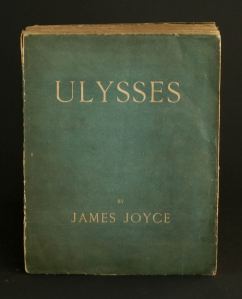 us: our lives aren’t day-to-day, but inexhaustible. We might look at ourselves and motivations and think, not much to it! But through Lacan’s understanding, a whole varied, textured, and layered portrait appears. No wonder he was interested in Joyce, who, in Ulysses, revealed that a single ordinary day was also and always a mythic saga of consciousness.
us: our lives aren’t day-to-day, but inexhaustible. We might look at ourselves and motivations and think, not much to it! But through Lacan’s understanding, a whole varied, textured, and layered portrait appears. No wonder he was interested in Joyce, who, in Ulysses, revealed that a single ordinary day was also and always a mythic saga of consciousness.
We are beings of desire, not knowledge.
Desire is not a thing, but a gesture of being.
Our words give indications of our unconscious and our desire.
We don’t know why we use the words we do.
We want what we want because we’re thinking of what others want from us.
And we’re thinking of others in a certain way because we’re imagining a them in relation to an even bigger Other.
What that means is that in a way, our unconscious isn’t some totally static object that’s somewhere inside our brain. Instead, it’s something that happens to and through us. In that frantic swirling chaos of happenings, what do we do? We try to make sense of it.
The way we make sense of the world is our foundational illusion. It’s paranoid.
Imagine the stereotypical image of the conspiracy theorist, sitting in his bedroom. He’s sweaty, of course, he hasn’t left his house in awhile. On his wall are all sorts of photos. Between them, strings connecting one photo to the next, to the next. When his phone rings, it’s because someone is after him. Is it the government? When he answers, it’s just a telemarketer. But wait, he knows that the telemarketer is actually a secret agent posing as a telemarketer. Next time, he won’t answer because he knows why they’re calling him.
This is how we all encounter the world. The key differences between a non-paranoid person and a paranoid one are that the paranoid person’s ego is on the surface, evinced by all his behavior, rather than hiding; and also that someone who does not exhibit psychosis in a paranoid way simply exhibits less certainty in her convictions. But the fact remains: All of us are always threading the dots, creating connective tissue, making correlations.
Paranoia is an x-ray of a “normal” person’s mind.
This is why Lacan is so important to understanding sex, because our ideas of sex – which are, after all, intimately connected to desire on every level – are delusional. Our feelings about sex are totally attached to a nearly psychotic level of certainty. What is more common about sexuality than claiming to know what it is we prefer? We like what we like. “I can’t control what I’m attracted to,” people say. “I’m not into that.” The contours of most people’s sexualities are fixed by what we think others want: The state, our parents, our lovers, the person we’re hitting on, who “society” tells us is attractive, and more. Even people who are not certain about what they may or may not want sexually are often totally certain about what they could or could not do.
And when it comes to relationships, we are often at our most paranoid. Not just when we look through a lover’s texts, convinced he or she is cheating on us, and finding ourselves unsatisfied when there isn’t any evidence of that, but in the desperate work of assessing.
Here’s a sequence to explore that: I spend a Monday night one a date with a guy. It’s interesting, though not passionate. I see him again Wednesday and we have sex, and then I see him again on Friday but he makes me angry. Even though he’s made me angry, I decide to see him again anyway the next Tuesday. All along, I’m in a perpetual quest to pin down the situation with words. I think “where is this going?” and “are we dating?” And eventually, “is he my boyfriend?”
Another way to expose these frameworks: when we go out to bars and events hoping to find “the One.” That one special person.
It’s a reenactment of P.D. Eastman’s children’s book Are You My Mother?, a title just waiting for psychoanalytic dissection. In
it, a lost baby bird wanders around asking other animals and even objects if they are his mother. In the book’s climax, the fledgling interrogates a steam shovel, which, though terrifying, reveals to him the ridiculousness of his question and lifts him back into his nest.
The person questing for meaning at the bar looks at everyone he meets, sizing them up. Is this “the One?” No. What about this person? No. What about…?
No wonder the question of the One can haunt us long after we get into a relationship. Did we choose properly?
We’re all performing this paranoid structure, it’s just that most of us don’t know we’re performing it. The job of the analyst isn’t to “cure” the person of their ego structure and somehow make them totally authentic. Instead, Lacan wishes an adventure on the analysand: What happens when you drop the connections you’re making and start to regroup your fundamental fantasy about how the world works?
Far from the desexualized stereotype that some critics place on him, Lacan wanted people to experience the true movement and fluidity of their desire.
“There is no sexual relationship,” he stated. We don’t ever really encounter each other during sex because there’s so much regulating the interaction, particularly our ideas of sex/gender/man/woman. By the time we get to the bedroom, it’s already too late to meet another human being. “One can no more speak of ‘woman’ than of ‘man’ without …invalidating in advance any conceptualization,” declared French feminist writer Helene Cixous. Lacan might agree and add, “Or speak of any sexual advance either.” In sex, we only meet each other, instead, as “partial objects.” That is, we encounter whatever aspect it is that we can handle. Objectification is not the same as dehumanization. Indeed, for Lacan, it is an intrinsic part of the sexual process. The question that needs to be answered isn’t “How do we not objectify?” but “Why would I want to do anything else?” Desire will lead you to releasing all the false objects of desire that you think will please you. Follow it, and you won’t ever see other people the same way again.
“The only thing,” Lacan stated, “of which one can be guilty is of having given ground relative to one’s desire.”
He didn’t try to dissuade anyone from their desires (and as such was one of the first psychoanalysts to work with people who identified as homosexual without trying to change them). What he wanted instead, was for people to confront what they swore up and down was “real,” because it was precisely what they were using to avoid what might be truer. To put it in the words of theological writer GK Chesterton, “the vision is always solid and reliable. The vision is always a fact. It is the reality that is often a fraud.”
The desire is the truth, if there is such a thing.
*
Next Up: Sex Radicals Today
*
Sources
Badiou, Alain and Elisabeth Roudinesco. Jacques Lacan, Past and Present: A Dialogue. New York: Columbia University Press, 2014.
Lacan, Jacques. The Seminar of Jacques Lacan: On Feminine Sexuality, the Limits of Love and Knowledge (Encore). New York: W.W. Norton & Company, 1998.
Lacan, Jacques. Écrits: The First Complete Edition in English. New York: W.W. Norton & Company, 2006.
McGowan, Todd. Enjoying What We Don’t Have: The Political Project of Psychoanalysis. Lincoln: University of Nebraska Press, 2013.
Rogers, Annie. The Unsayable: The Hidden Language of Trauma. New York: Ballantine, 2007.
Zizek, Slavoj. How To Read Lacan. New York: W.W. Norton & Company, 2007.
NoSubject.com. Entire site. Web.

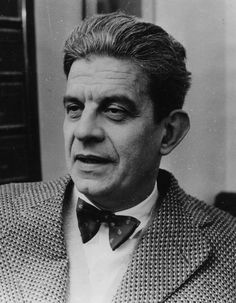
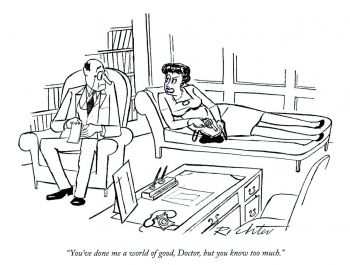
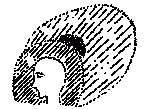
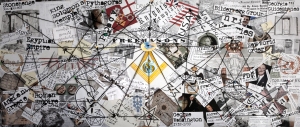

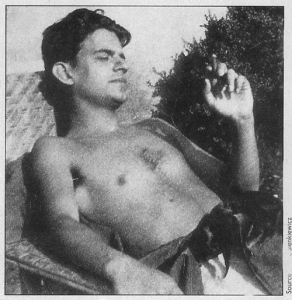

What did Lacan think of Budhism?
Let’s just say his feelings were…complicated.
This has been a great series of blogs and they keep getting curiouser and curiouser.